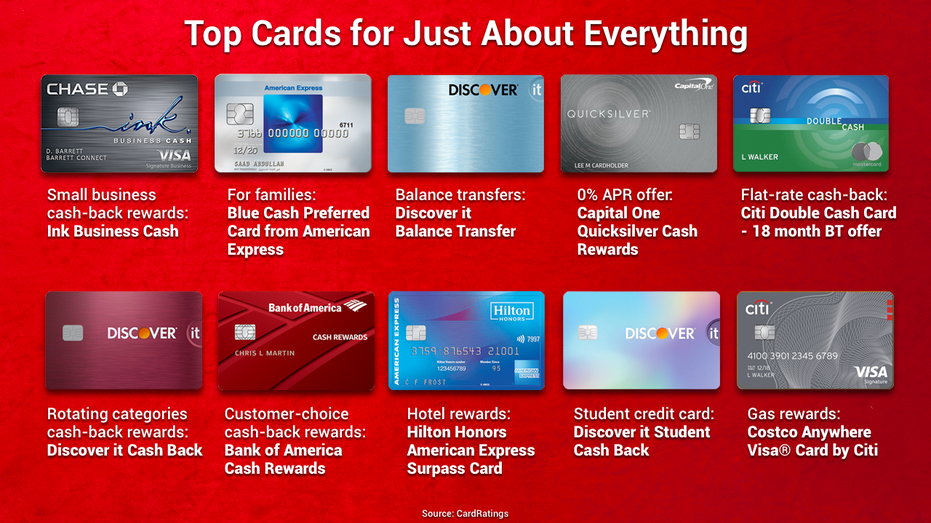Best Credit Line For Small Business
Welcome to our guide on the top credit lines for small businesses! As a small business owner, having access to a reliable credit line can be crucial for managing cash flow and covering unexpected expenses. In this article, we will explore some of the best credit lines available to small businesses, helping you make informed decisions for your financial needs.
Understanding the Importance of Credit Lines for Small Businesses
Small businesses often require capital to operate and grow, and having access to a credit line can be a valuable tool in meeting these financial needs. A credit line is a flexible form of financing that allows a small business to borrow funds up to a certain limit, and repay them as needed. This can be especially beneficial for businesses with fluctuating cash flow or seasonal sales, as it provides them with the necessary funds to cover expenses during slow periods or take advantage of opportunities for growth.
One of the key benefits of having a credit line for a small business is the ability to access funds quickly and conveniently. Unlike traditional loans, which may have a lengthy approval process and require collateral, a credit line can be set up in advance and funds can be accessed immediately when needed. This can be crucial in situations where a business needs to make a time-sensitive purchase, cover unexpected expenses, or take advantage of a business opportunity that requires immediate funding.
Additionally, having a credit line can help small businesses improve their credit score and build a positive credit history. By using the credit line responsibly and making timely payments, a small business can demonstrate its ability to manage debt and access additional financing in the future. This can be invaluable when seeking larger loans or lines of credit, as lenders will be more likely to extend credit to businesses with a proven track record of responsible borrowing.
Another important aspect of having a credit line for a small business is the flexibility it offers in managing cash flow. Unlike a traditional loan, where the business receives a lump sum of money upfront and makes fixed monthly payments, a credit line allows the business to borrow only the amount needed at any given time. This can help small businesses avoid taking on unnecessary debt and only pay interest on the funds they actually use.
Overall, having a credit line can provide small businesses with the financial flexibility and stability they need to succeed and thrive in today’s competitive business environment. Whether it’s covering day-to-day expenses, investing in growth opportunities, or managing seasonal cash flow fluctuations, a credit line can be a valuable tool for small businesses looking to manage their finances effectively and achieve their long-term goals.
Comparison of Different Types of Credit Lines Available for Small Businesses
When it comes to obtaining a credit line for your small business, there are a few different options to consider. Each type of credit line has its own unique features and benefits, so it’s important to understand the differences between them before making a decision. Below are some of the most common types of credit lines available for small businesses:
1. Traditional Bank Lines of Credit: Traditional bank lines of credit are one of the most common types of credit lines available for small businesses. These credit lines are typically offered by traditional banks and credit unions, and they function similarly to a personal line of credit. With a traditional bank line of credit, you can borrow up to a certain limit, and you only pay interest on the amount you borrow. These credit lines often come with competitive interest rates and flexible repayment terms, making them a popular choice for many small business owners.
2. Business Credit Cards: Business credit cards are another popular option for small businesses in need of a credit line. Business credit cards work similarly to personal credit cards, allowing you to make purchases and access cash advances up to a certain credit limit. Many business credit cards offer rewards programs, such as cash back or travel rewards, making them a great option for small businesses looking to earn rewards on their purchases. Additionally, business credit cards often come with online account management tools that can help you track your expenses and manage your cash flow more effectively. However, it’s important to note that business credit cards typically come with higher interest rates compared to traditional bank lines of credit.
3. Invoice Financing: Invoice financing is a type of credit line that allows small businesses to borrow money against their outstanding invoices. With invoice financing, a lender will advance you a percentage of the value of your unpaid invoices, giving you access to cash before your customers pay. Once your customers pay their invoices, the lender will deduct the amount they advanced you, along with a fee, from the total amount received. Invoice financing can be a great option for small businesses that have a lot of outstanding invoices and need access to cash quickly. However, it’s important to carefully review the terms and fees associated with invoice financing, as they can vary significantly between lenders.
In conclusion, there are several different types of credit lines available for small businesses, each with its own unique features and benefits. Whether you choose a traditional bank line of credit, a business credit card, or invoice financing, it’s important to carefully consider your options and choose the credit line that best suits your business needs and financial situation.
Tips for Choosing the Best Credit Line for Your Small Business
When it comes to finding the best credit line for your small business, there are several factors that you should consider. Here are some tips to help you make the right decision:
1. Assess Your Business Needs: Before you start looking for a credit line, take the time to assess your business needs. Consider how much money you need, what you will use it for, and how quickly you need the funds. This will help you determine the type of credit line that is best suited for your business.
2. Compare Different Lenders: It’s important to shop around and compare different lenders when looking for a credit line. Each lender may offer different terms, interest rates, and repayment options. By comparing your options, you can find the lender that offers the best terms for your business.
3. Consider Your Business’s Financial Health: Before applying for a credit line, it’s important to consider your business’s financial health. Lenders will typically look at your business’s credit score, revenue, and cash flow when determining whether to approve your application. Make sure that your business is in good financial standing before applying for a credit line to increase your chances of approval.
4. Understand the Terms and Conditions: Before signing any agreements, make sure that you fully understand the terms and conditions of the credit line. Pay close attention to the interest rate, repayment schedule, and any fees associated with the credit line. It’s important to know exactly what you are agreeing to before taking on any debt for your business.
5. Seek Advice from Professionals: If you are unsure about which credit line is best for your business, consider seeking advice from financial professionals. Accountants, financial advisors, and business consultants can help you evaluate your options and make an informed decision that is best for your business.
By following these tips, you can make an informed decision when choosing the best credit line for your small business. Remember to carefully assess your business needs, compare different lenders, consider your business’s financial health, understand the terms and conditions, and seek advice from professionals if needed. With the right credit line in place, you can access the funds you need to grow and expand your business.
Top Lenders Offering Credit Lines for Small Businesses
When it comes to obtaining a credit line for a small business, there are several top lenders that specialize in catering to the needs of small businesses. These lenders offer various options and benefits to help small businesses access the capital they need to grow and thrive. Here are some of the top lenders offering credit lines for small businesses:
1. Wells Fargo: Wells Fargo is a well-known name in the banking industry and offers a variety of credit line options for small businesses. They offer flexible terms and competitive interest rates, making it a popular choice for many small business owners.
2. Chase: Chase is another major player in the banking industry that offers credit lines for small businesses. They offer a wide range of credit line options, allowing small business owners to choose the option that best fits their needs. Chase also has a user-friendly online platform that makes it easy to manage your credit line.
3. OnDeck: OnDeck is a popular online lender that specializes in providing credit lines and other financing options for small businesses. They offer fast approvals and funding, making it a great option for small businesses that need access to capital quickly. OnDeck also offers competitive rates and flexible terms.
4. Kabbage: Kabbage is another online lender that offers credit lines for small businesses. They are known for their quick and easy application process, with approvals in as little as a few minutes. Kabbage also offers a flexible credit line that allows small businesses to borrow funds as needed, making it a convenient option for businesses with fluctuating cash flow.
Overall, there are several top lenders that offer credit lines for small businesses, each with their own unique benefits and features. By exploring the options available from these lenders, small business owners can find the right credit line to help them achieve their goals and grow their business. Whether you choose a traditional bank like Wells Fargo or an online lender like OnDeck or Kabbage, there are plenty of options to help you access the capital you need to succeed.
How to Qualify for a Credit Line for Your Small Business
Securing a credit line for your small business can be a great financial tool to help your business grow and succeed. However, qualifying for a credit line can often be challenging, especially for small businesses with limited financial history or creditworthiness. To increase your chances of qualifying for a credit line, consider the following tips:
1. Improve Your Personal Credit Score: One of the most important factors that lenders consider when evaluating your credit line application is your personal credit score. Make sure to check your credit score regularly and take steps to improve it if necessary. Paying off outstanding debts, making timely payments, and keeping your credit utilization low can all help boost your credit score.
2. Establish a Strong Business Credit Profile: In addition to your personal credit score, lenders will also look at your business credit profile. Make sure that your business has its own separate credit profile by obtaining a DUNS number and regularly monitoring and maintaining good credit practices for your business.
3. Prepare a Comprehensive Business Plan: Lenders want to know that you have a clear plan for how you will use the credit line and how you will repay the funds. Prepare a comprehensive business plan that outlines your business goals, financial projections, and how the credit line will help you achieve those goals.
4. Show Consistent Revenue and Cash Flow: Lenders will also want to see that your business has a consistent source of revenue and healthy cash flow to repay the credit line. Make sure to have up-to-date financial statements, such as profit and loss statements and cash flow statements, to demonstrate the financial health of your business.
5. Build Strong Relationships with Lenders: Building strong relationships with lenders can also increase your chances of qualifying for a credit line. Take the time to meet with potential lenders, explain your business goals and financial situation, and address any concerns they may have. By establishing trust and credibility with lenders, you may have a better chance of getting approved for a credit line.
By following these tips and taking proactive steps to improve your creditworthiness and financial health, you can increase your chances of qualifying for a credit line for your small business. Remember to be patient and persistent in your efforts, as securing a credit line may take time and effort, but the benefits for your business can be well worth it in the long run.






